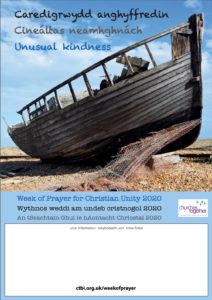The materials for the 2020 Week of Prayer for Christian Unity have been prepared by the Christian churches in Malta and Gozo (Christians Together in Malta). On 10th February many Christians in Malta celebrate the Feast of the Shipwreck of St Paul, marking and giving thanks for the arrival of Christian faith on these islands.The reading from the Acts of the Apostles used for the feast is the text chosen for this year’s Week of Prayer. The story begins with Paul being taken to Rome as a prisoner (Acts 27:1ff). Paul is in chains, but even in what turns out to be a perilous journey, the mission of God continues through him. This narrative is a classic drama of humanity confronted by the terrifying power of the elements. The passengers on the boat are at the mercy of the forces of the seas beneath them and the powerful tempest that rages about them. These forces take them into unknown territory, where they are lost and without hope.
Today many people are facing the same terrors on the same seas. The very same places named in the reading (27:1, 28:1) also feature in the stories of modern-day migrants. In other parts of the world, many others are making equally dangerous journeys by land and sea to escape natural disasters, warfare and poverty. Their lives, too, are at the mercy of immense and coldly indifferent forces – not only natural, but political, economic and human. This human indifference takes various forms: the indifference of those who sell places on unseaworthy vessels to desperate people; the indifference of the decision not to send out rescue boats; and the indifference of turning migrant ships away. This names only a few instances. As Christians together facing these crises of migration this story challenges us: do we collude with the cold forces of indifference, or do we show “unusual kindness” and become witnesses of God’s loving providence to all people?




You must be logged in to post a comment.